Questions with Adam and Dung: Founders of Glơgg, a made-in-Vietnam Spiced Wine
Marrying traditional Swedish glögg recipes with Vietnamese herbs and spices, Glơgg is a fruit wine, sweetened, fortified and most importantly flavoured with spices and herbs. But that’s not all, even the name “Glơgg” is a union of the Swedish noun glögg and the Vietnamese vowel ơ, symbolising the strong ties to both countries.
Photo credit: Glogg Spiced Wine
1. What was the inspiration behind Glơgg and how has the reception been since its launch?
Glơgg was preceded by a personal joy and tradition of making glögg for our family and friends every Christmas. The response was overwhelmingly positive, far beyond our expectations, we started receiving orders for homemade glögg from our friends as gifts. So we said, let's run with it and see where it takes us.
A few years later, several business thresholds and choices made and a lot has happened. We have established manufacturing proper, our brand and product is now defined and is meant to inspire a playful, social drinking style - one we clearly see reflected in our consumers. That said, as well received as Glơgg is by the Vietnamese, there is hard work in making people adopt new drinking habits.
Photo credit: Glogg Spiced Wine
2. Spiced wine in a tropical country - who is it for?
Spices and tropics definitely go together, after all there is plenty of spicy food in Asia's tropics. These spices are also familiar to people here, just a sip and you just know its a taste of home. This familiarity means that Glơgg is not a beverage that is hard to enjoy. There is no need to acquire a taste for it, no need to know wine culture, practices and etiquette. Those things don't apply to Glơgg, simply uncork and enjoy. As for who it is for. Glơgg is a festive and group beverage but what really stands out is that we have the majority of our customers among Vietnamese women. Young, urban and lifestyle driven. Where they might not find beer, spirits or conventional wine to be appealing, Glơgg fills a void.
3. Is there a beverage that Vietnamese locals already drink that makes you believe this would be a shoo-in for them?
No drink in particular, but several factors makes us think so. As a first example, people like their beverages both hot and cold here. Tea and coffee are great examples of this. Although alcohol is generally not consumed in a similar manner, Glơgg is! This inherent duality of hot and cold adds further to Glơgg already being easy and approachable for people. Is it a hot day? Beat the heat with a bottle of Glơgg placed on ice. Is it a nippy evening in the mountains or chilly after a big downpour? Warm the Glơgg up and then warm yourself.
Secondly, we noticed that lots of people prefer their drinks sweet, which is reflected in the popularity of both cider and fruit wine recently (apricot wine, plum wine etc.) and Glơgg offers exactly that.
Photo credit: Glogg Spiced Wine
4. What makes you confident this is something they would enjoy?
Consistently strong positive feedback gives us a lot of confidence that we are on to something. As a young company, we are often out there engaging customers directly via pop-ups, tastings and sponsored events. We get to see people's reactions face to face and it is very encouraging!
5. Is there a particular Glögg (or something else) brand that you’ve been inspired by or hope for your spirit to be?
There is not one particular beverage that we are inspired by. That said, given the nature of Glơgg, with its many options and flavours we will take a page out of the book of brands like Absolut that already have a whole line of flavours. Perhaps even anniversary flavours. In terms of customer segment. Look how cider when launched in Vietnam brought new consumers into the alcohol market. If we can create a mini 'Strongbow effect' among Vietnamese customers then we are well on our way.
6. Since starting your business, what are some of your biggest takeaways and learning about running your business in Vietnam?
This is the first time any of us run a product company and so we are engaging with entirely new suppliers, partners and competitors. It simply put a whole different game and so naturally we have been seeking quite a bit of advice from other players in the industry, as well as teaching ourselves how to run a factory, setting up a company, getting licences, marketing strategy etc.
We are glad to say that we have been greeted by friendly and helpful people, who share ideas and experiences, and this is not just because we are not in direct competition with them. We have observed the same generosity between competing beer or spirit companies. In this age of startups and in such a dynamic economy like Vietnam, people help each other, pass on knowledge and include everyone when they can. Needless to say, we are grateful for the welcome we have received.
Adam and Dung, founders of Glơgg Spiced Wine (Photo credit: Glơgg Spiced Wine)
8. Talk us through some of the most memorable parts of your journey and the work involved in making them?
As said we are a young company making an age-old beverage. As a young company, it's very much about concrete and real points on the journey. The completion of our factory, acquiring all licenses, finalising design and labels, feeling and seeing our final product. Also, because the tradition of spiced wine has been around for thousands of years means that the nod of acceptance from people who have had spiced wine before is something that sticks.
Most memorable when actually making Glơgg is processing the spices, the labour is intense but fun. On the other end is bottling. There is something almost meditational seeing the bottles fill with Glơgg. Also, our factory literally smells delicious so production day is memorable to the senses. Regrettably not everyone in manufacturing gets to enjoy that.
9. Your favourite local Vietnamese craft spirit as well as in the world?
Adam: Local for me would probably be Saigon Baigur Gin. In the world, I'm a big fan of triple sec or a unique Swedish liqueur named Punsch. I have a sweet tooth so liqueurs are right up my alley.
Dung: I am not a big drinker so I don't particularly prefer one spirit over another. However, I do enjoy a good cocktail and seeing many Vietnamese craft spirits make their way into cocktails and take the place of famous global spirit brands, is very impressive.
Photo credit: Glogg Spiced Wine
10. Best — and worst — thing anyone has said about your Glogg?
The best thing. Is not so much what someone said but rather how again and again when presented with a glass of Glơgg many people will say: 'I don't like wine', and the team will joke how Adam then replies: 'Then you will like Glơgg'. Sure thing, most of the time, people do.
The worst thing. There have not been any outright bad complaints, or we should say, at least none that we heard of. Instead, there have been comments made as a result of a person’s misunderstanding of what spiced wine is. What comes to mind other than that is that sometimes people would question the residue in the bottle (when a bottle is placed standing still for a long time many of the spices fall out of suspension and gather at the bottom), and wonder if it is a result of bad filtering because a good red wine should be clear to the sight.
We have deliberately chosen a level of filtration that retains quite a lot of spices, and thus the flavours that we have. If we filter too fine, some flavours go as well. To prevent further misunderstanding about the residue at the bottom of the bottle, we have included instructions such as turning the bottle over before each use to ensure that the spices are mixed back into the pour.
Photo credit: Glogg Spiced Wine
Understanding Vietnam’s love affair with wine
11. Can you share a little bit about Vietnamese wine culture that many people don’t know about?
We should be frank here. First and foremost we focus on the mixing and flavouring of wine, we are not a vineyard. As for Vietnamese wine culture, two things can be said. The Vietnamese are becoming more familiar with the wine world, different grapes, regions and whatnot. Parallel to this the fruit wine market in Vietnam is on the rise with several quality brands. If you define wine more broadly and include those made from grains then rice-based wine also has several domestic players striving for quality produce.
12. How would you describe Vietnam’s relationship with wine? What do they like and dislike about it?
The common man/woman in Vietnam perceives grape wine as quite a prestigious alcohol. The average household will have some wine and they are perhaps on display next to a few bottles of cognac or whiskey. We would also argue that most people don't like the taste of wine that much and it is not the go-to drink for a party. Beer and clear spirits reign supreme. Glơgg on the other hand is fun and easy enough to enjoy over dinner with a friend or when out “nhau-ing". No need to wait for some exclusive once-a-year event to open a bottle of Glơgg.
Photo credit: Glogg Spiced Wine
13. What occasions do Vietnamese locals drink wine and where do they learn about it?
As suggested above. Wine, for many Vietnamese, seems to be a beverage for festivity, used to greet guests. Perhaps during Tet, weddings or other high-profile events. Conventional wine can undoubtedly be complicated and a touch intimidating, to anyone honestly. Assumably people learn through word of mouth how one should consume it. This all seems to clash with Vietnam though. Should red wine be served at room temperature in Vietnam? What if it's July, you are in Hanoi and the quicksilver is showing 41 degrees? Are you allowed to put ice in your wine? Why not? People put ice in their beer here. Luckily Glơgg as a spiced wine skips all such stringent etiquette.
14. What occasion do you hope for your audience to enjoy your spiced wine?
Social gatherings and enjoying it together. If you go out for a beer with friends, or a cocktail after work, there is certainly a charm in each person buying their own drink or type of beer. With wine, this idea is turned upside down. Often its instead about picking a particular grape/vintage and then sharing the bottle as a group. Glơgg is the same but the group can even take the social aspect further. For example, if served warmed from a bowl, with ladel, one would fill the cup of your table companion, cheer and drink together. This is definitely something we want to convey because it fits very well with the generous drinking and dining culture of Vietnam.
15. What did you wish you had known when you started Glogg that could have saved you a lot of time/energy or money?
As mentioned, Glơgg is Spiced Wine and there are plenty of spices and indeed suppliers of spices. It’s immensely fun to source and try out different spices but there is a paperwork side to it. As a beverage company, we are required to use only spices from particular certified suppliers. Finding not just the right spice but also from the right company then suddenly becomes less fun and more work. Identifying the right suppliers earlier would have saved us a lot of work.
16. Why now?
In the craft gang of Vietnam, we are not the first but we are still in the early batch, (pun intended). The market has been introduced to craft breweries and distilleries but there is arguably a decent market share to get in on. Combine that with a young, urban class of strong consumers that seek out international produce. Seems a great time to spring for success if you ask us.
17. Any exciting plans for the rest of 2023?
We have just launched our second flavour of Glơgg! That plus the goal of exporting Glơgg are arguably the two big things that come to mind. Foundation wise we also have the ambition to establish distribution in all major Vietnamese cities, hopefully within this year!
About Adam and Dung: Dung Ngo is a Vietnamese national with more than a decade of practising law. Adam Edermo is a Swede. Now in Vietnam for 17 years and coming from a background in Automotive and business consultancy. Perhaps not the typical folks behind an alcohol producer but far from the only people starting a business away from their primary field of expertise.
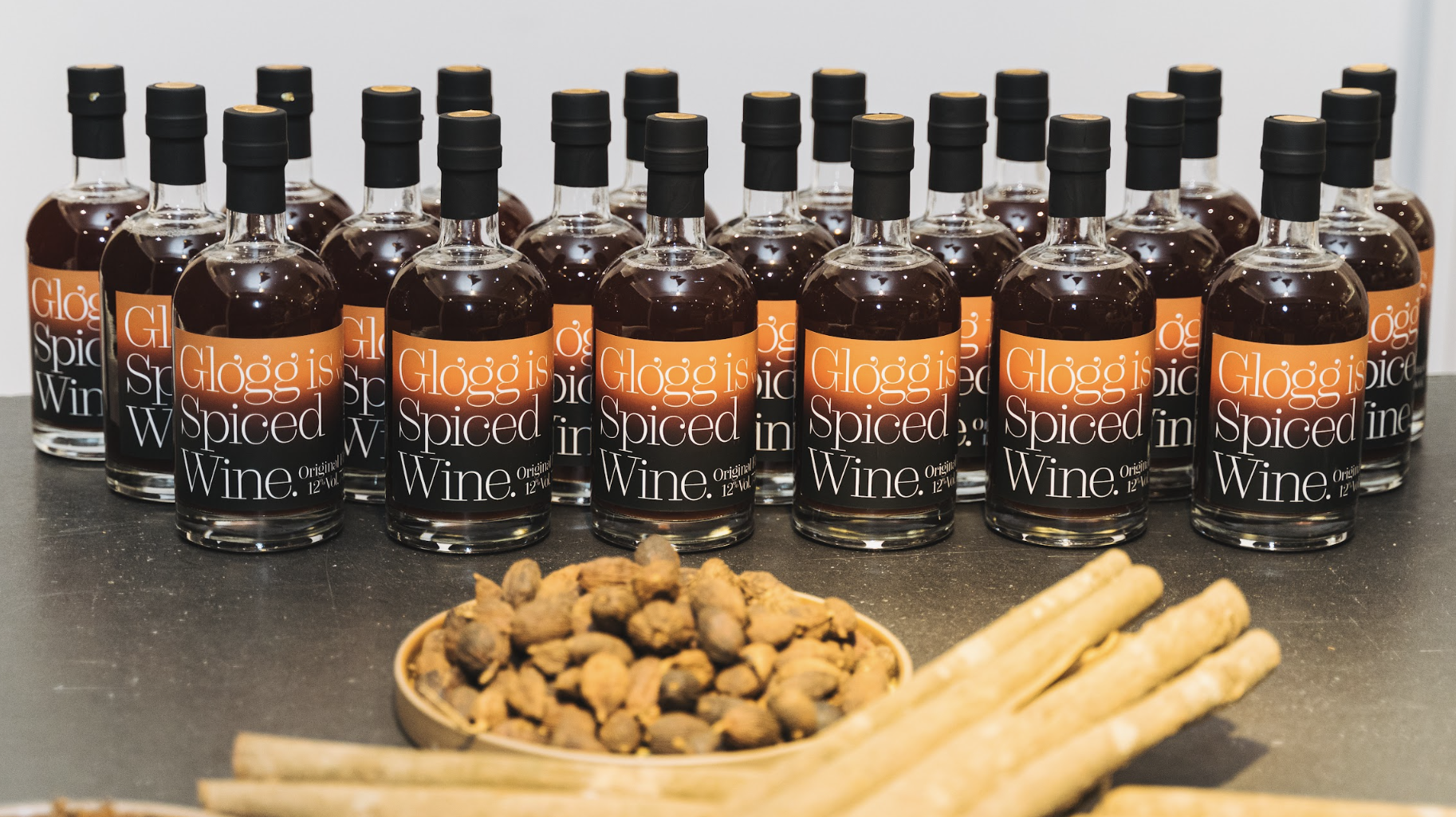
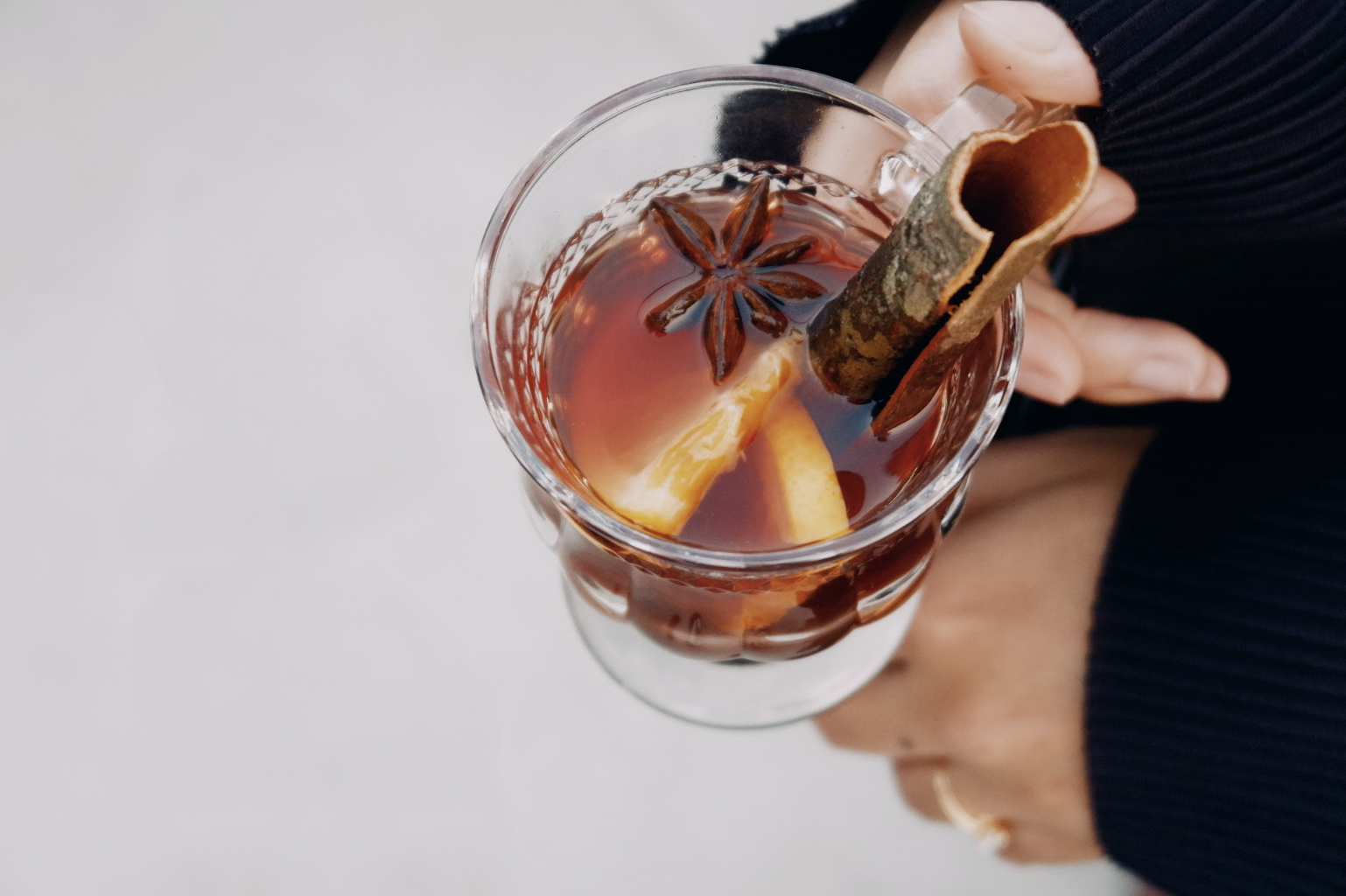
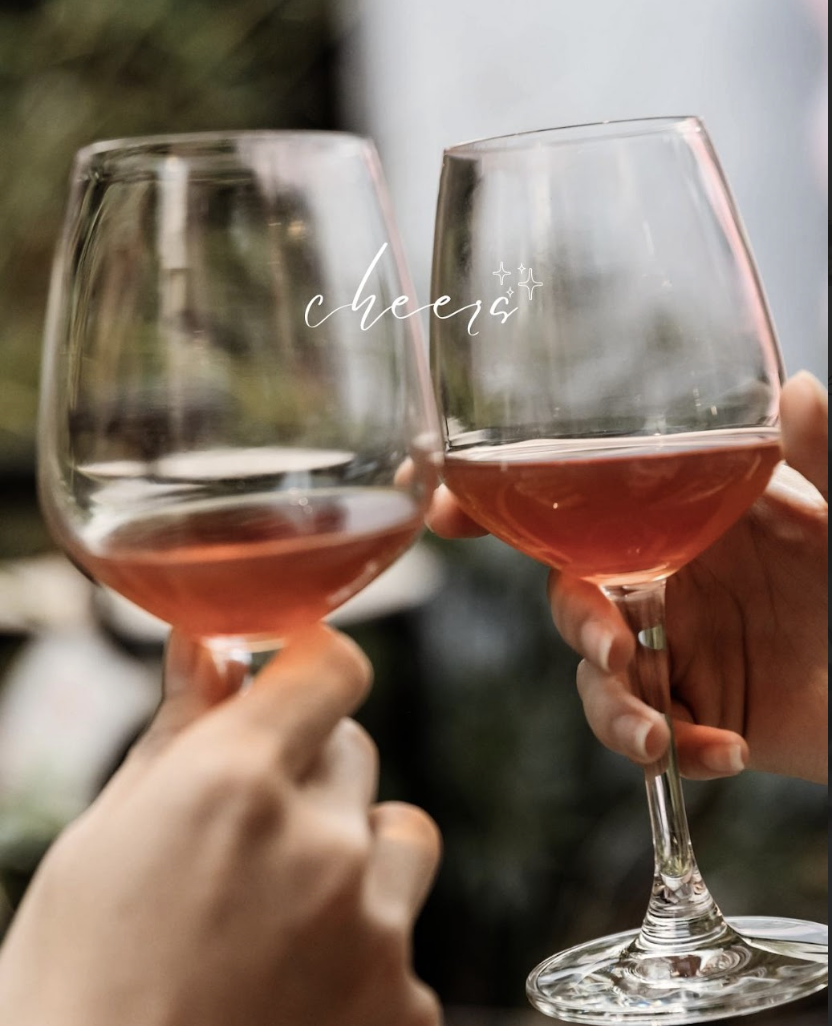
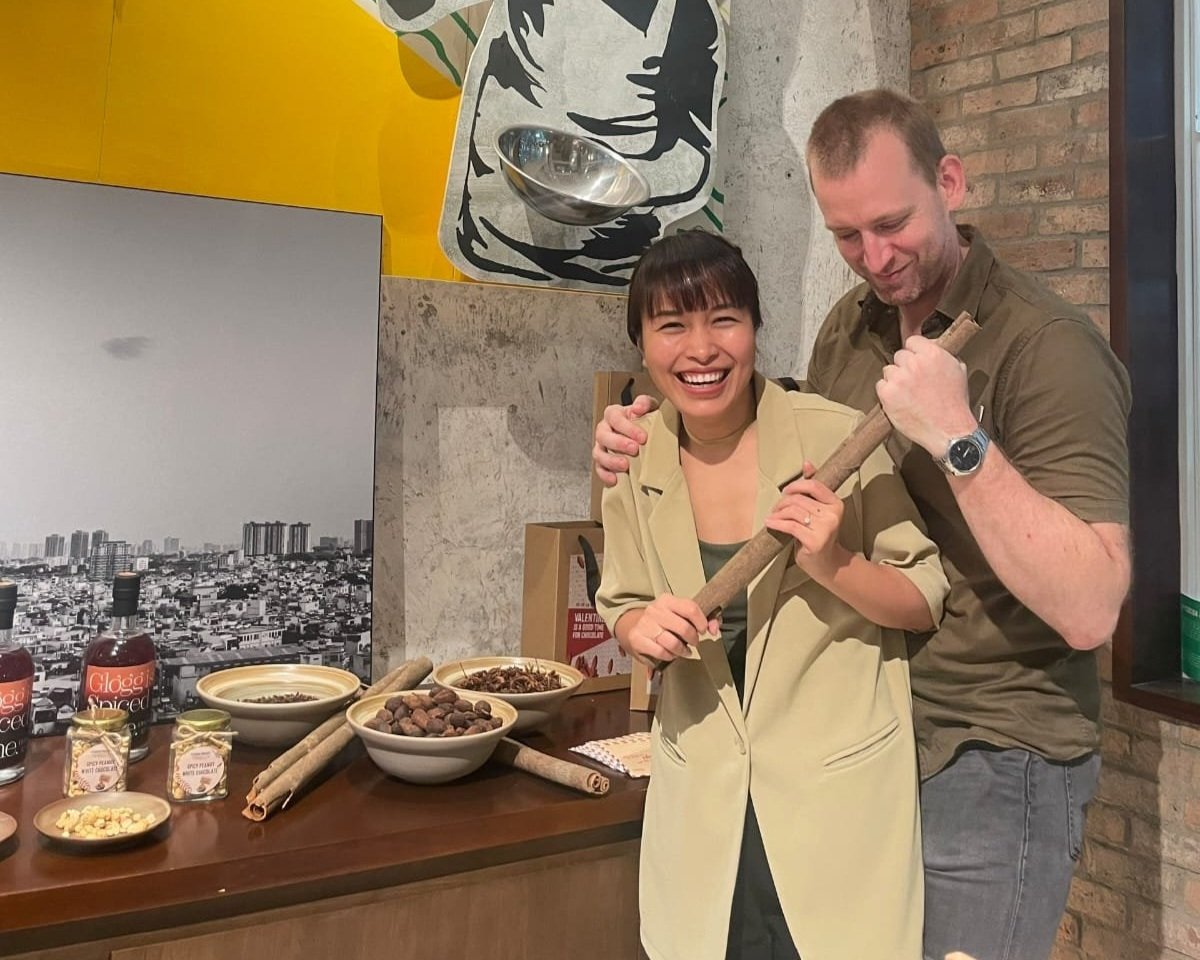

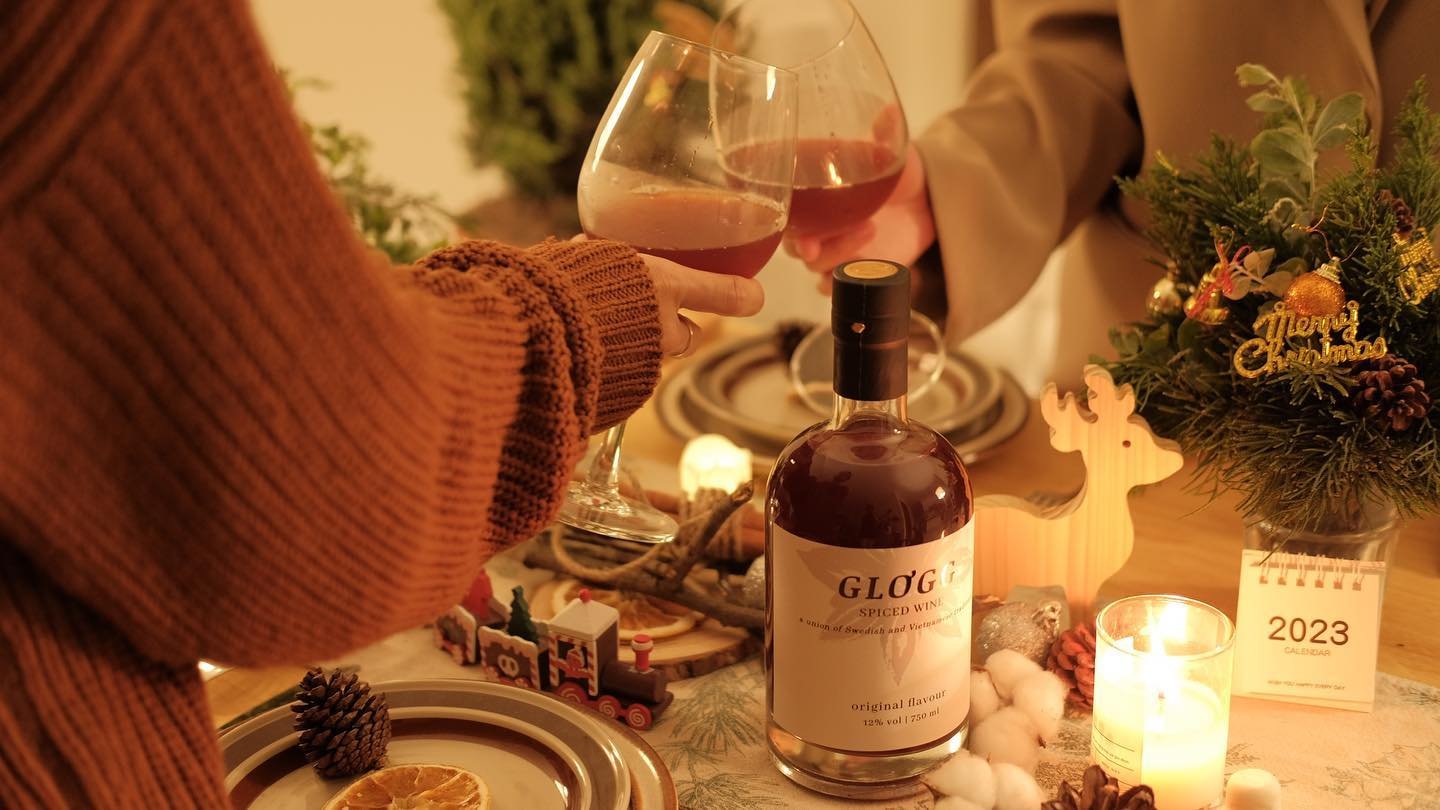
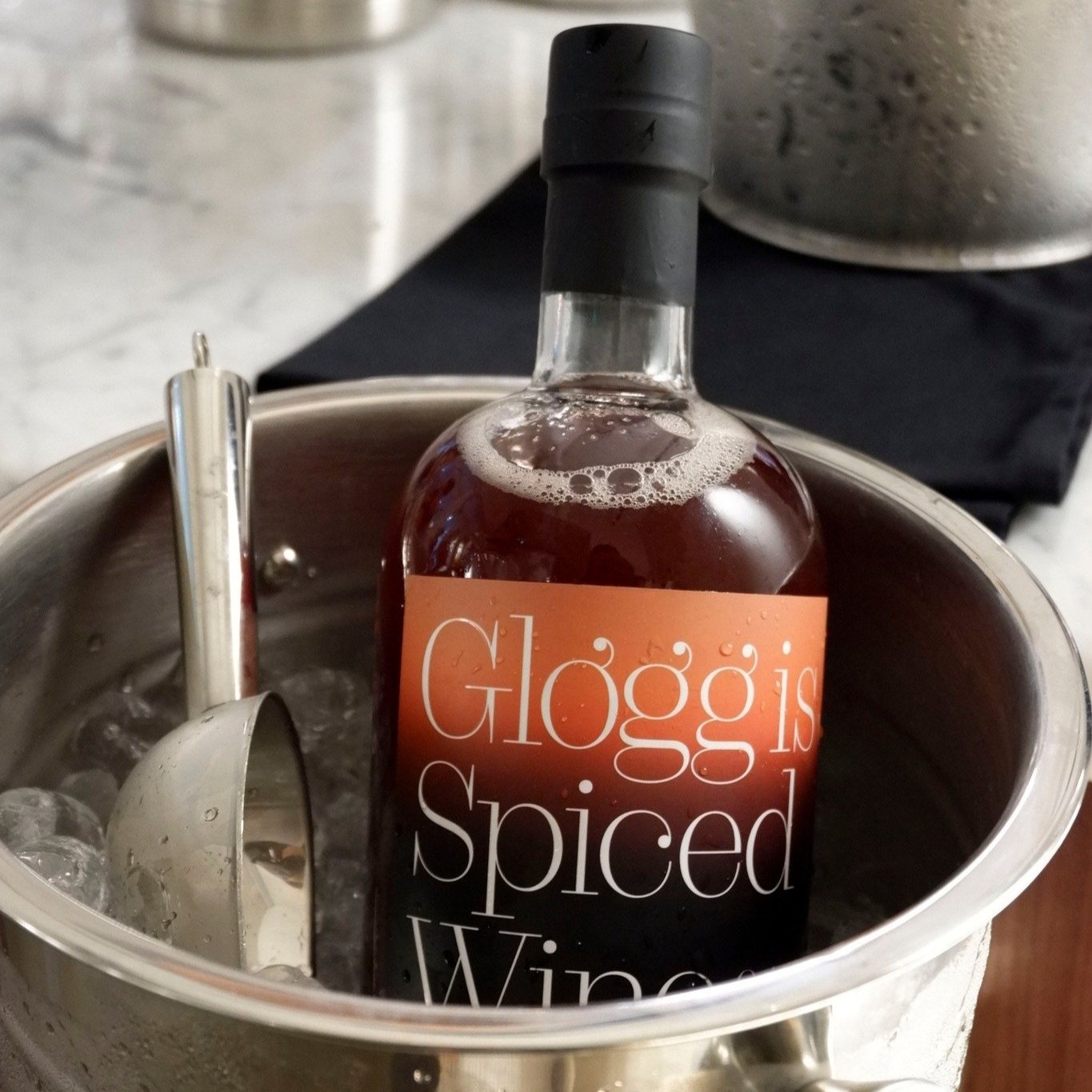

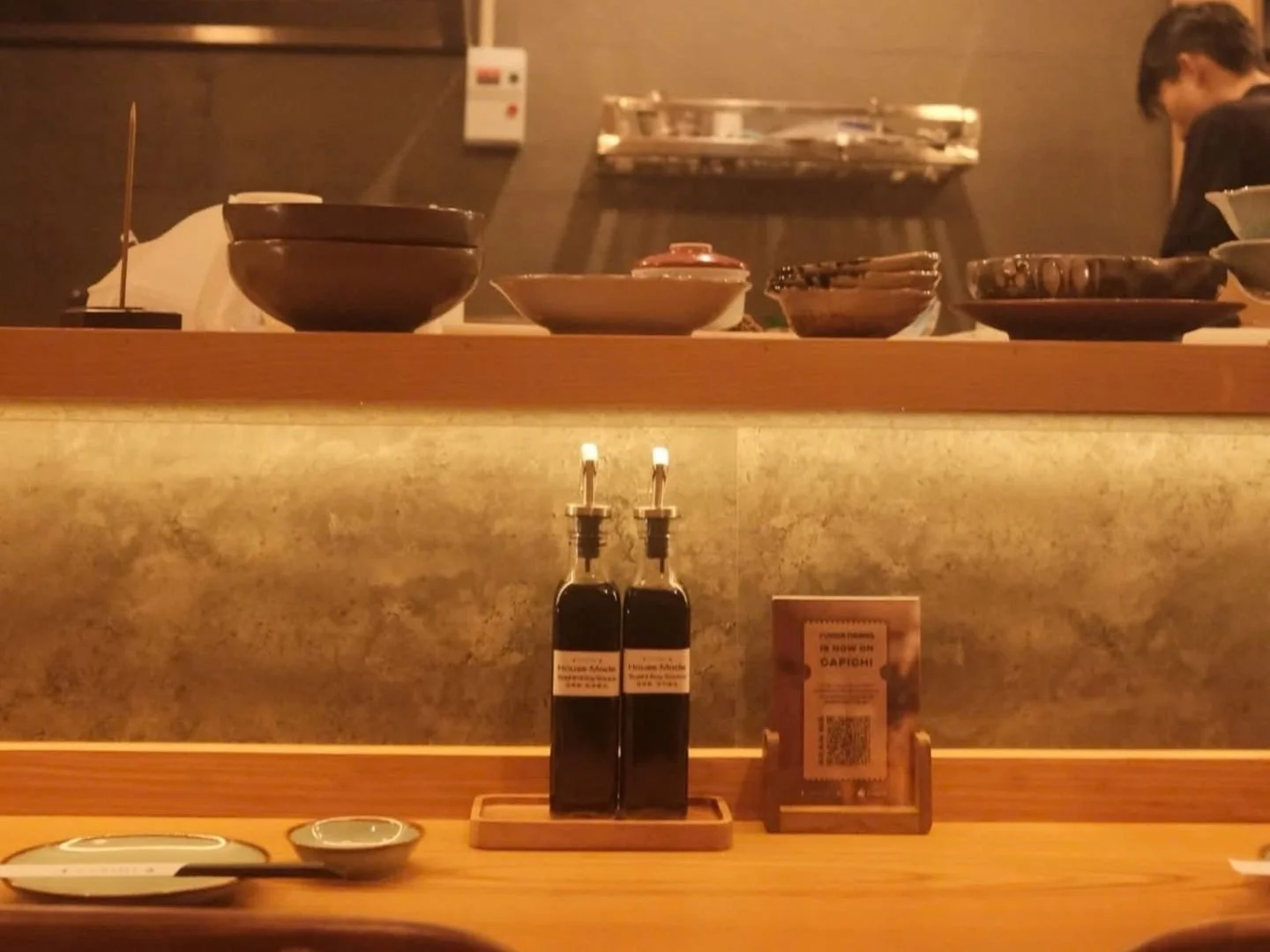
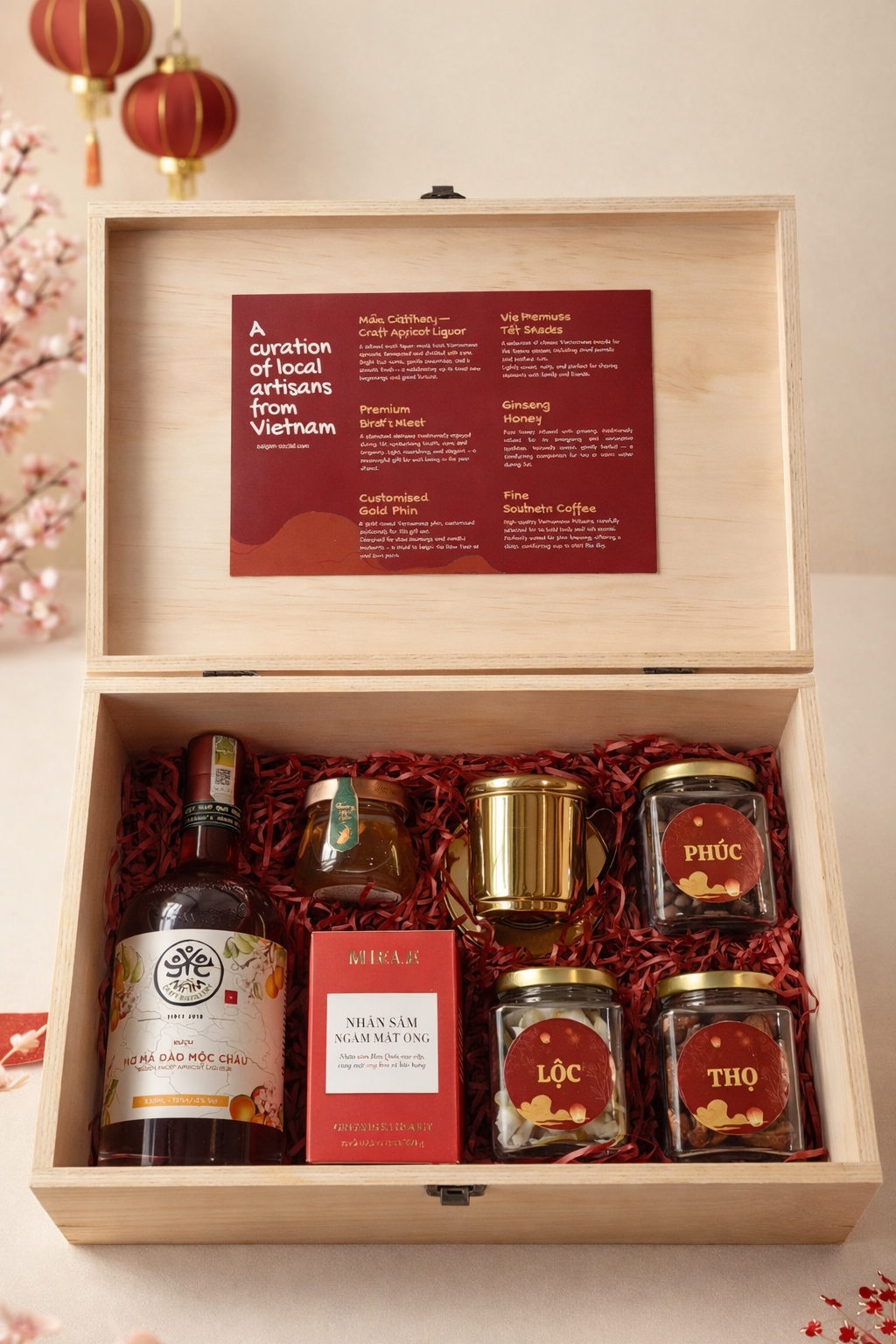
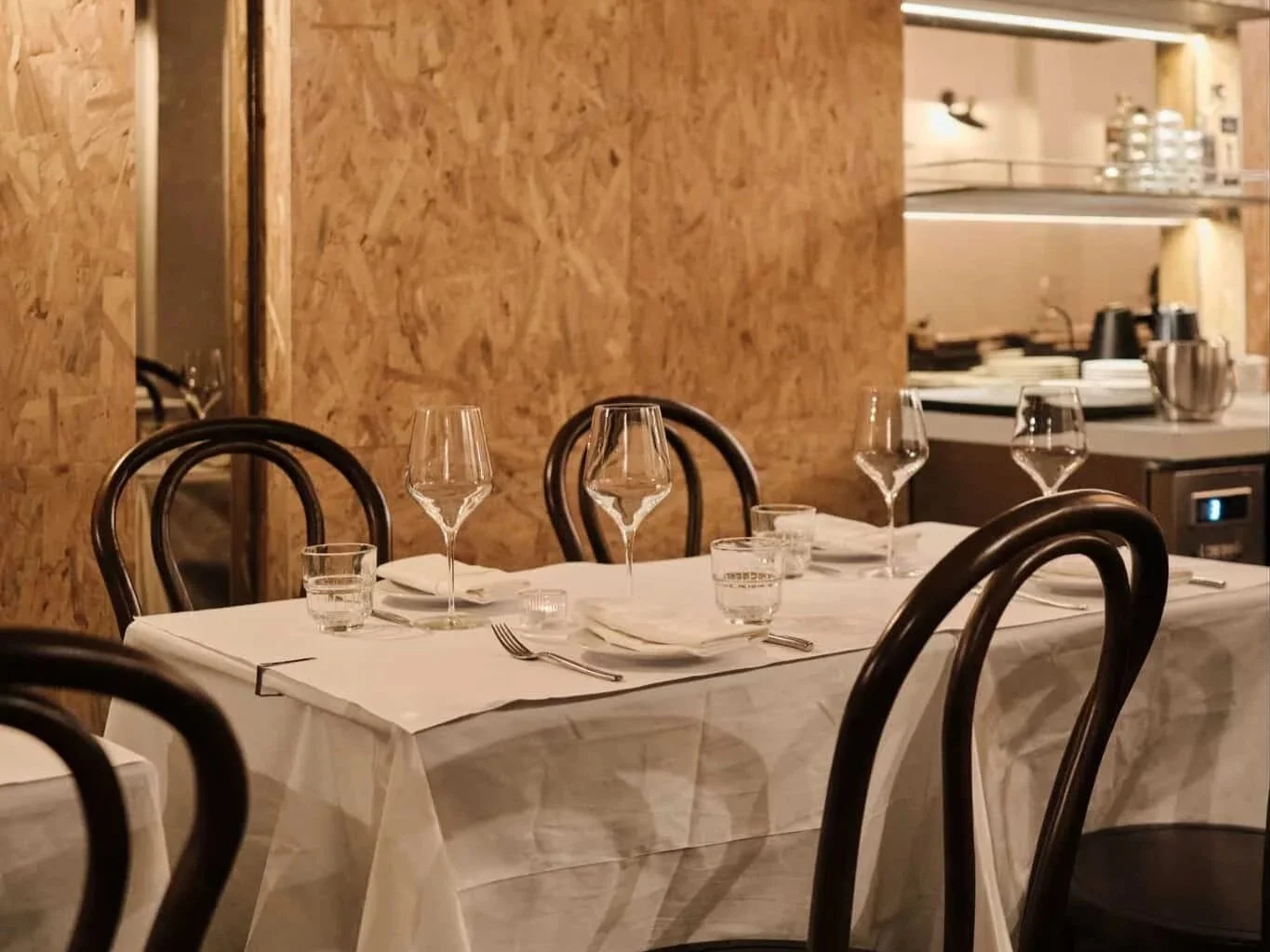









Like what you read?
Discover Vietnam’s coming-of-age food and drink scene with one of our tours and experiences exclusively available at Saigon Social